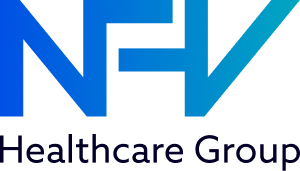Today, the Centers for Medicare & Medicaid Services (CMS) provides an at-a-glance summary of news from around the agency.
CMS Releases Vaccine Toolkit of Vaccine Coverage and Administration for Medicaid and Children’s Health Insurance Program Individuals
February 12: CMS released a vaccine toolkit to equip states with the tools necessary to meet the needs of people with Medicaid and the Children’s Health Insurance Program (CHIP) coverage. The kit helps states understand coverage, cost-sharing, and payment for vaccines, including vaccines administered as part of the Inflation Reduction Act (IRA) under Medicaid, CHIP, and the Basic Health Program (BHP). Vaccinations have long served as a critical tool for the prevention of disease, as a deterrent for outbreaks, and, over the past few years, as a response to public health emergencies (PHE), such as for COVID-19 and Mpox. Acknowledging that states are navigating vaccination coverage requirements after the expiration of the COVID-19 public health emergency, this toolkit also includes guidance regarding the commercialization of COVID-19 vaccines and the end of the American Rescue Plan Act (ARP) COVID-19 vaccination coverage period, which extends through September 30, 2024.
CMS Updates Medicare Disparities Mapping Tool to Include Medicare Advantage Data
February 13: CMS updated the Mapping Medicare Disparities (MMD) Tool to include 2018 Medicare Advantage data and new visual enhancements. The tool is an interactive map that provides a population view to look at data on a national, state, or local level, and the hospital view, which looks at hospital quality and costs of care at the county level. The tool can identify disparities between subgroups of people with Medicare (e.g., racial and ethnic groups) in health outcomes, utilization, and spending. It is an excellent starting point for understanding and investigating geographic, racial, and ethnic differences in health outcomes. Previously, the MMD Tool used only Medicare Fee-for-Service data but will now include Medicare Advantage data as well. The tool is available in English and Spanish.
CMS Approves Home- and Community-Based Services’ Demonstration for Oregon
February 13: CMS approved a new section 1115 demonstration for Oregon named Oregon Project Independence — Medicaid. Approval of this demonstration will enable the state to receive federal financial participation (FFP) to provide a limited set of home- and community-based services (HCBS) to older adults or adults with disabilities. The demonstration will provide supports to meet these individuals’ health needs while also sustaining the needs of their caregivers. CMS is also authorizing continuous eligibility to align this demonstration with the Oregon Health Plan and Oregon Contraceptive Care demonstrations, to support consistent coverage and continuity of care by keeping individuals enrolled for 24 months regardless of income fluctuations or other changes. The approval supports CMS’ mission to make coverage better.
CMS Issues Guidance on Updated Prospective Payment System for Certified Community Behavioral Health Clinic Demonstration
February 15: Signed into law in 2014, the Medicaid Certified Community Behavioral Health Clinic (CCBHC) demonstration improves the availability, quality, and outcomes of ambulatory behavioral health services. The demonstration initially involved eight states. Since then, it has been extended and expanded several times. Two states were added in 2020 and the Bipartisan Safer Communities Act authorized the addition of up to 10 additional states starting in 2024, and up to 10 more every two years thereafter. The statute requires the use of a prospective payment system (PPS) methodology to pay participating clinics for the provision of nine services: (1) crisis mental health services; (2) screening, assessment, and diagnosis; (3) patient-centered treatment planning; (4) outpatient mental health and substance use services; (5) outpatient clinic primary care screening and monitoring; (6) targeted case management; (7) psychiatric rehabilitation services; (8) peer support, counselor services, and family supports; and (9) intensive, community-based mental health care for members of the armed forces and veterans. This updated PPS guidance is based on feedback that CMS received from states, providers, and other stakeholders — most notably to address the high-cost and specialized care delivered through mobile and on-site crisis intervention services to individuals who are experiencing a substance use or mental health-related crisis. Behavioral health is a top CMS priority and the updated guidance will help states with cost reporting and claiming Medicaid expenditures at the statutorily enhanced Federal Medical Assistance Percentage (FMAP) rate throughout the remainder of the demonstration program.
CMS Administrator Chiquita Brooks LaSure and HHS Leaders Celebrate Black History Month
February 15: In celebration of Black History Month, CMS Administrator Chiquita Brooks-LaSure joined HHS leaders to highlight work the Biden-Harris Administration is doing to strengthen equity in the U.S. health care system. Administrator Brooks-LaSure has been dedicated to advancing health equity, expanding coverage, and improving health care affordability. Under her leadership, CMS enrolled over 21 million people in Affordable Care Act (ACA) Marketplace plans in 2024, a record-high; announced the first ever drugs selected for Medicare drug price negotiation; and approved 44 states, the District of Columbia, and the U.S. Virgin Islands to extend post-partum Medicaid coverage for a full year after pregnancy. Black History Month is an opportunity to lift-up and recognize the impact of black leaders in health. Check out this video here.
CMS Approves Arizona’s Health Care Cost Containment System Section 1115 Demonstration — Parents as Paid Caregivers and KidsCare Expansion Amendment
February 16: CMS approved coverage expansions in Arizona through an amendment of two policies, “Parents as Paid Caregivers” (PPCG) and “KidsCare Expansion.” Approval of the Parents as Paid Caregivers amendment will allow the state to continue to reimburse legally responsible parents for providing direct care to their minor children, helping to mitigate the direct care worker shortage and improve access to timely, effective care in the home and community. Additionally, the KidsCare Expansion amendment will allow the state to increase the Children’s Health Insurance Program (CHIP) eligibility thresholds from 200% of the federal poverty level (FPL) to 225% of the FPL. Expanding KidsCare is expected to improve the rate of child health insurance coverage, increase access to affordable health care coverage, decrease costs by addressing health needs earlier, when care is less expensive, and provide financial relief for families. The demonstration will remain in effect until September 30, 2027.
CMS Posts Brief on Medicaid.gov Highlighting the Work of the Improving Postpartum Care Affinity Group Collaborative
February 16: Improving maternity care continues to be a top priority for CMS. The agency posted a brief on Medicaid.gov highlighting the work of its Improving Postpartum Care learning collaborative. From April 2021 to April 2023, CMS convened the learning collaborative to support state Medicaid and Children’s Health Insurance Program (CHIP) agencies’ efforts to improve health outcomes among postpartum people. The learning collaborative included a webinar series and an affinity group. Nine states participated in the affinity group. Each state team worked with CMS by using a data-driven approach to identify, test, implement, and evaluate a quality improvement project to improve the quality of and access to postpartum care and to address disparities. Results from states that participated are featured in this highlight’s brief.
CMS Posts Integrated Care for Kids (InCK) Model Evaluation Report 2
February 16: CMS launched the Integrated Care for Kids (InCK) Model to improve quality, reduce utilization and cost, and create pediatric alternative payment models (APM). CMS recently posted its second evaluation report, which covers five cross-cutting findings during the first year of implementation in 2022. The InCK Model is a child-centered local service delivery and state payment model that aims to reduce expenditures and improve the quality of care for children ages 0-20 covered by Medicaid. Some programs also include pregnant individuals ages 21 and over. The primary goals of the InCK Model are to improve early identification and increase treatment of behavioral and physical health needs. The InCK Model aims to achieve these goals by assessing the physical and behavioral health and social needs of children and then providing targeted integrated care coordination and case management services to those in greatest need. InCK Model award recipients have developed state-specific APMs to align payment with sustainable care quality. This is part of CMS’ efforts to lower health care costs and make coverage better.
CMS Releases Disproportionate Share Hospital (DSH) Third-party Payer Final Rule Clarifying Limits
February 20: CMS released the final disproportionate share hospital (DSH) third-party payer rule, addressing recent legislative changes that govern the hospital-specific limit on Medicaid DSH payments. Federal law requires that state Medicaid programs make DSH payments to qualifying hospitals that serve a large number of Medicaid and uninsured individuals. States generally have flexibility regarding the specific hospitals to which they make payments and how they determine the amount of those payments, within certain parameters. For example, under the hospital-specific limits, a hospital’s DSH payments may not exceed the costs incurred by that hospital in furnishing inpatient and outpatient hospital services during the year to certain Medicaid beneficiaries and the uninsured, less certain other payments covered by law. This rule will afford states and hospitals more clarity on how the limit that took effect on October 1, 2021, will be calculated. Additionally, it will enhance administrative efficiency by making technical changes and clarifications to the DSH program.
CMS Approves the 44th State – Alaska’s – Postpartum Coverage Extension Medicaid State Plan Amendment
February 23: CMS approved a postpartum coverage extension state plan amendment (SPA) for Alaska (link to come). This SPA approval will extend comprehensive coverage after pregnancy through Medicaid and the Children’s Health Insurance Program (CHIP) for a full 12 months. The approval of Alaska’s SPA marks critical progress in implementing the CMS Maternity Care Action Plan, which supports the Biden-Harris Administration’s Maternal Health Blueprint, a comprehensive strategy aimed at improving maternal health, particularly in underserved communities. Alaska is the 44th state, including D.C. and the U.S. Virgin Islands that have extended postpartum Medicaid coverage to a full year, made possible by President Biden’s American Rescue Plan (ARP), and made permanent by the Consolidated Appropriations Act, 2023 (CAA, 2023), which President Biden signed into law in December 2022.

